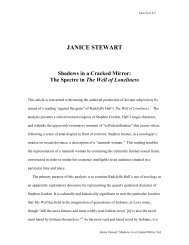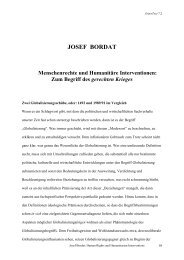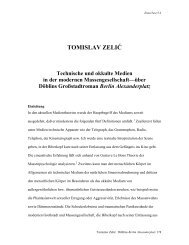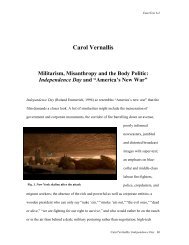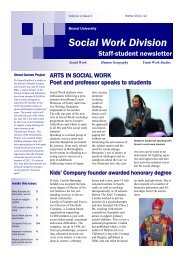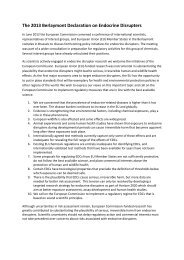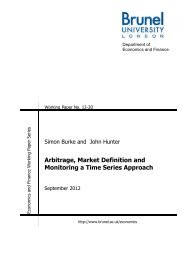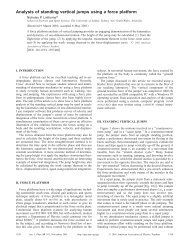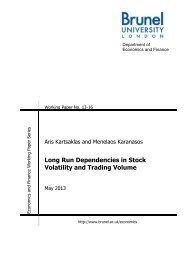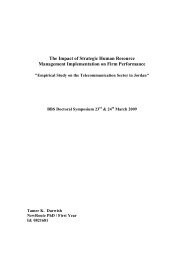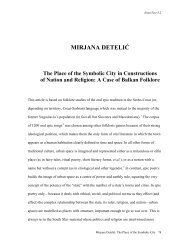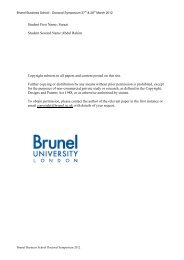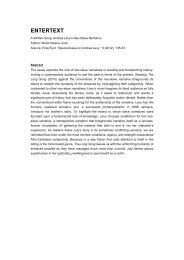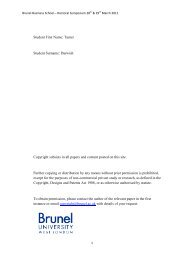Tomislav Zelic: Technological and Occult Media ... - Brunel University
Tomislav Zelic: Technological and Occult Media ... - Brunel University
Tomislav Zelic: Technological and Occult Media ... - Brunel University
You also want an ePaper? Increase the reach of your titles
YUMPU automatically turns print PDFs into web optimized ePapers that Google loves.
EnterText 5.2<br />
be a structural analogy between his mass psychological analysis <strong>and</strong> the functioning of<br />
the emerging new medium cinema, which coincidentally was invented by the Lumière<br />
brothers in the very same year, 1895, that Le Bon’s study was published. In other words,<br />
cinema may be seen as the absent point of reference to early mass psychological theory.<br />
Therefore, the cinematic experience lends itself to be interpreted in terms of the socio-<br />
psychological analysis of mass experience, <strong>and</strong> the individual who is a member of the<br />
crowd, in fact, shares some of the psychosomatic features with the individual who is a<br />
member of the movie audience.<br />
Most importantly, in his cinematic experience Biberkopf resembles occult human<br />
media who are hypnotized under the spell of a hypnotist who in this case is replaced by<br />
the technological apparatus of cinematography. Like a hypnotized medium, Biberkopf<br />
loses parts of his conscious personality, <strong>and</strong> his intellectual abilities are weakened, while<br />
his emotional excitability is intensified. He thinks associatively in the illogical rhythms of<br />
cinematic images. 11 Le Bon uses several medical, physiological, psychological, <strong>and</strong><br />
occult concepts to describe the state of fascination, attentiveness, <strong>and</strong> expectation into<br />
which the individual enters when undergoing a mass experience: contagion, paralysis,<br />
suggestion, hypnotism, mesmerism, <strong>and</strong> automatism. In medico-psychological<br />
examinations for legal purposes, Judicial Assessor Dr. Albert Hellwig inquires into “the<br />
suggestive power of the cinematographic presentation” (Suggestivkraft der<br />
kinematographischen Vorführung) 12 <strong>and</strong> claims that the suggestive power could “cause<br />
illusions <strong>and</strong> hallucinations of other sense organs.” 13 In an earlier essay he already<br />
proposed that cinematic images could “leave behind lasting impressions” <strong>and</strong> “inspire<br />
ruinous thoughts”, which in some cases could even lead to the committal of crimes. 14<br />
<strong>Tomislav</strong> Zelić: Döblin’s Berlin Alex<strong>and</strong>erplatz 159



